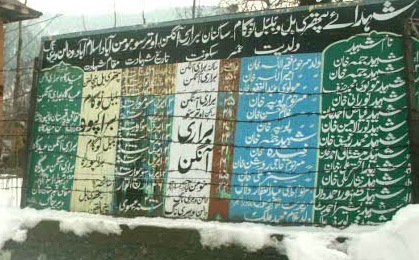Newspaper Article 28/10/2016
AMID current tension between Pakistan and India, the withdrawal of India from the South Asian Association for Regional Cooperation (SAARC) summit that was scheduled to be held in November 2016 at Islamabad is a major blow to SAARC. Following the suit, Bangladesh, Bhutan and Afghanistan have also withdrawn on the basis that environment is not conducive for talks. It has been reported that SAARC Summit has been cancelled because of non-availability of four SAARC member states that have informed the SAARC Chair Nepal. Following the cancellation of SAARC Conference, the credibility of SAARC as a regional organization has become uncertain.
SAARC is a regional organization and provides a platform for mutual dialogue and interaction/ co-operation among SAARC member states in areas of common interests. SAARC promotes peace and harmony in the region through settlement of regional issues/disputes. SAARC has helped in economic growth and regional connectivity through trade and investments under different trade structures and mechanisms such as South Asia Free Trade Agreement (SAFTA) and South Asia Preferential Trade Agreement (SAPTA) etc. But unfortunately in the prevailing environment, SAARC has lost its significance and effectiveness due to rigid behaviour of one state i.e. India. SAARC has been victim of Indian intransigence. India’s atrocities in Indian Held Kashmir (IHK) and aggressive stance have been a source of irritant for Pakistan. Kashmir issue has always remained a point of content in Pakistan-India bilateral relations.
Although Indian Prime Minister Narendra Modi had initially tried to engage with Pakistan by inviting Nawaz Sharif for his inauguration ceremony in 2014 and then made an unscheduled stopover at Lahore last year. But India’s problem is the Kashmir issue. The struggle for right of self-determination by Kashmiris has been considered terrorism by India. The cross border escalation between Pakistan and India has intensified under Modi’s government. Prior, Pakistan was accused of Pathankot attack and now of Uri attack. The bilateral relations between Pakistan and India started deteriorating after PM Nawaz highlighted Kashmir and Indian atrocities in Indian Held Kashmir at UN General Assembly 71st Session in New York. This was responded by Indian Foreign Ministers, Sushma Swaraj’s speech, in which she accused Pakistan as a state sponsoring terrorism. Since then, India has been in a diplomatic and political mission coupled with coordinated media efforts to isolate Pakistan at global and regional levels.
India has limitations to isolate Pakistan by military means because of risk of nuclear escalation therefore India is using non-military options to put pressure on Pakistan. India has already received sympathy vote from US, Arab World and international community in the context of Uri attack but Indian’s plans such as unilateral abrogation of Indus-Water Treaty (IWT) and cancellation of Most Favoured Nation (MFN) status to Pakistan would not only impact Pakistan but decline India’s global profile as well. The revoking of treaty would have legal implications and would threaten other regional states having bilateral agreements with India on sharing and utilizing of water. Similarly on economic front, SAARC itself already has not made much progress in terms of intra-regional trade due to bilateral disputes between Pakistan and India. The revoking of MFN status would affect Indian economy much as compared to Pakistan because as per fiscal year (FY 2014-2015), India’s exports to Pakistan were worth $1.7 bn and its imports from Pakistan were only $358m. Hence, these moves by India to isolate Pakistan are not rational and viable options to end cross border terrorism in the region. The cancellation of SAARC summit because of India has closed the doors for regional states to sit together and find a regional agenda to deter the menace of terrorism. Although SAARC States have signed and ratified the SAARC 1988 Convention of Terrorism and an Additional protocol in 2003, but these mechanism are not adequate to deal with the emerging terrorism threats in region. In fact, India is acting as a spoiler to peace process and has jeopardized the future attempts for joint struggle to fight regional terrorism.
In this hostile environment between Pakistan and India, when SAARC has become dysfunctional and irrelevant to resolve the current impasse between Pakistan and India, Pakistan has proposed for a bigger SAARC with inclusion of other states such as China, Iran and Central Asian Republics (CARs) to counter Indian influence in the region. If seriously worked upon, the implementation of this proposal would open prospects and opportunities for Pakistan. This suggested new regional arrangement would help revive SAARC and would address the grievances of smaller SAARC states fed up with the Indian hegemony in region. The modification of SAARC would also help to promote SAARC objectives of better regional trade, economic cooperation and establishment of peace among SAARC member states.
The article has been carried by The Daily Patriot October 14,2016 by the Pakistan observer, October 23, 2016.
Disclaimer: Views expressed are of the writer and not necessarily reflective of IPRI policy.


